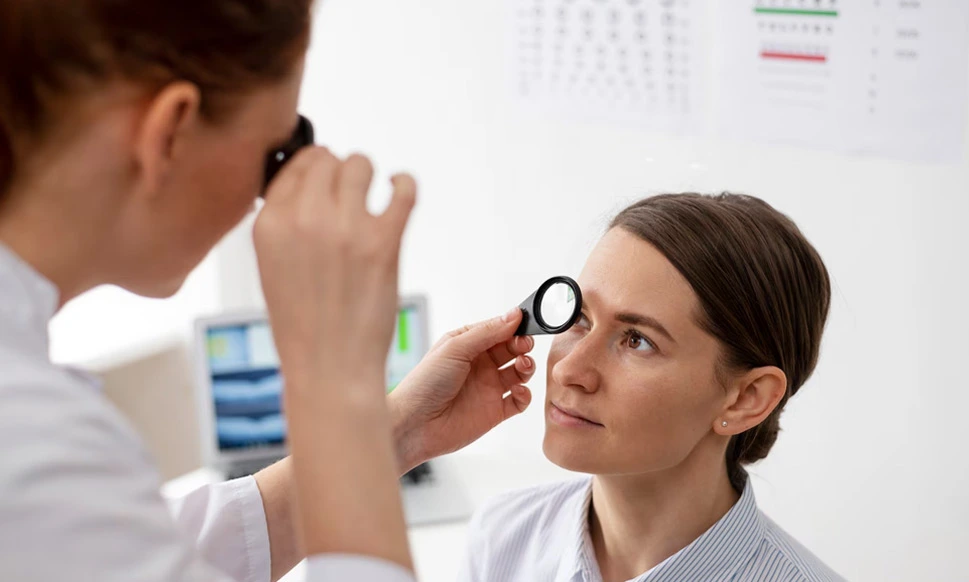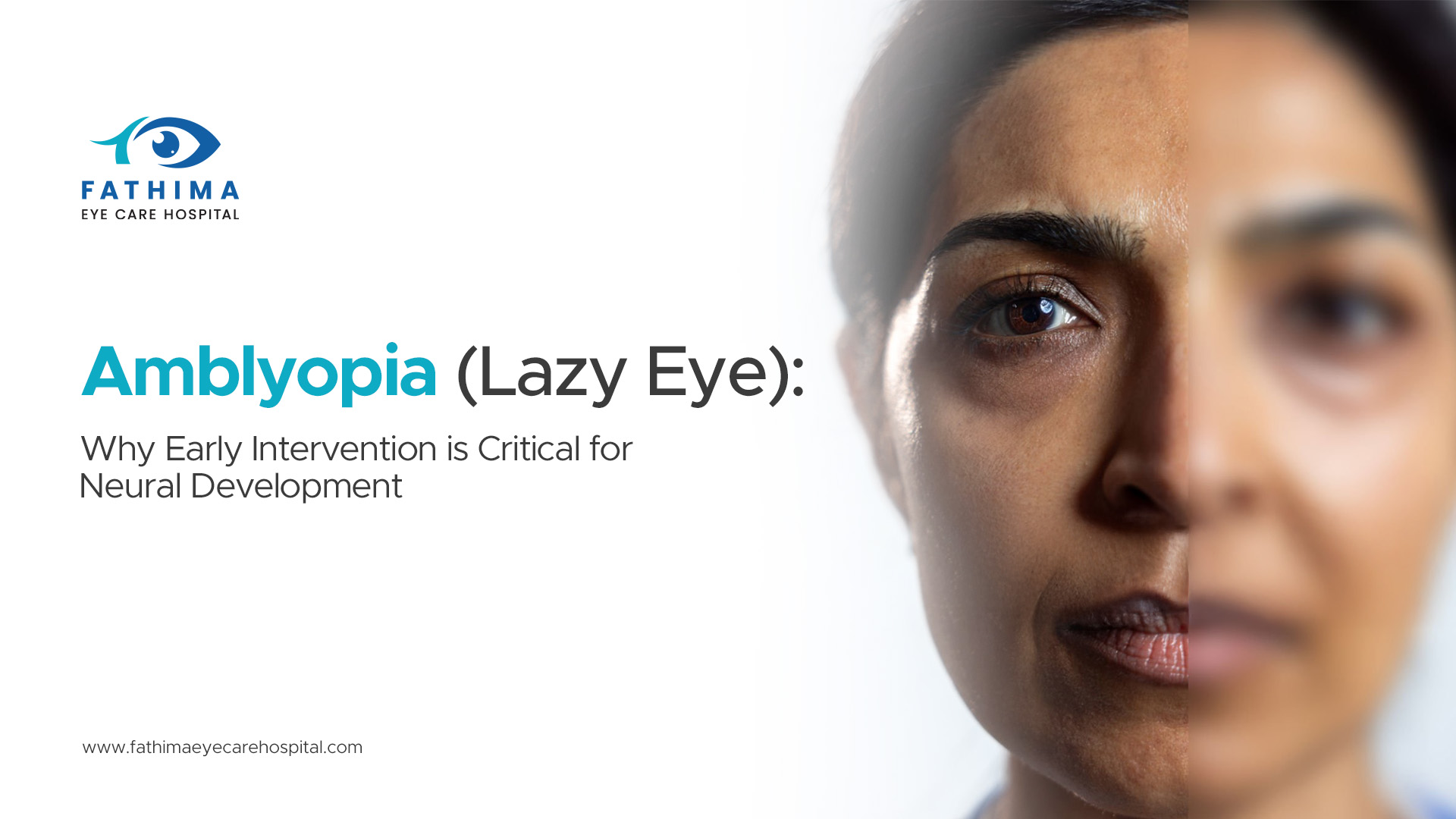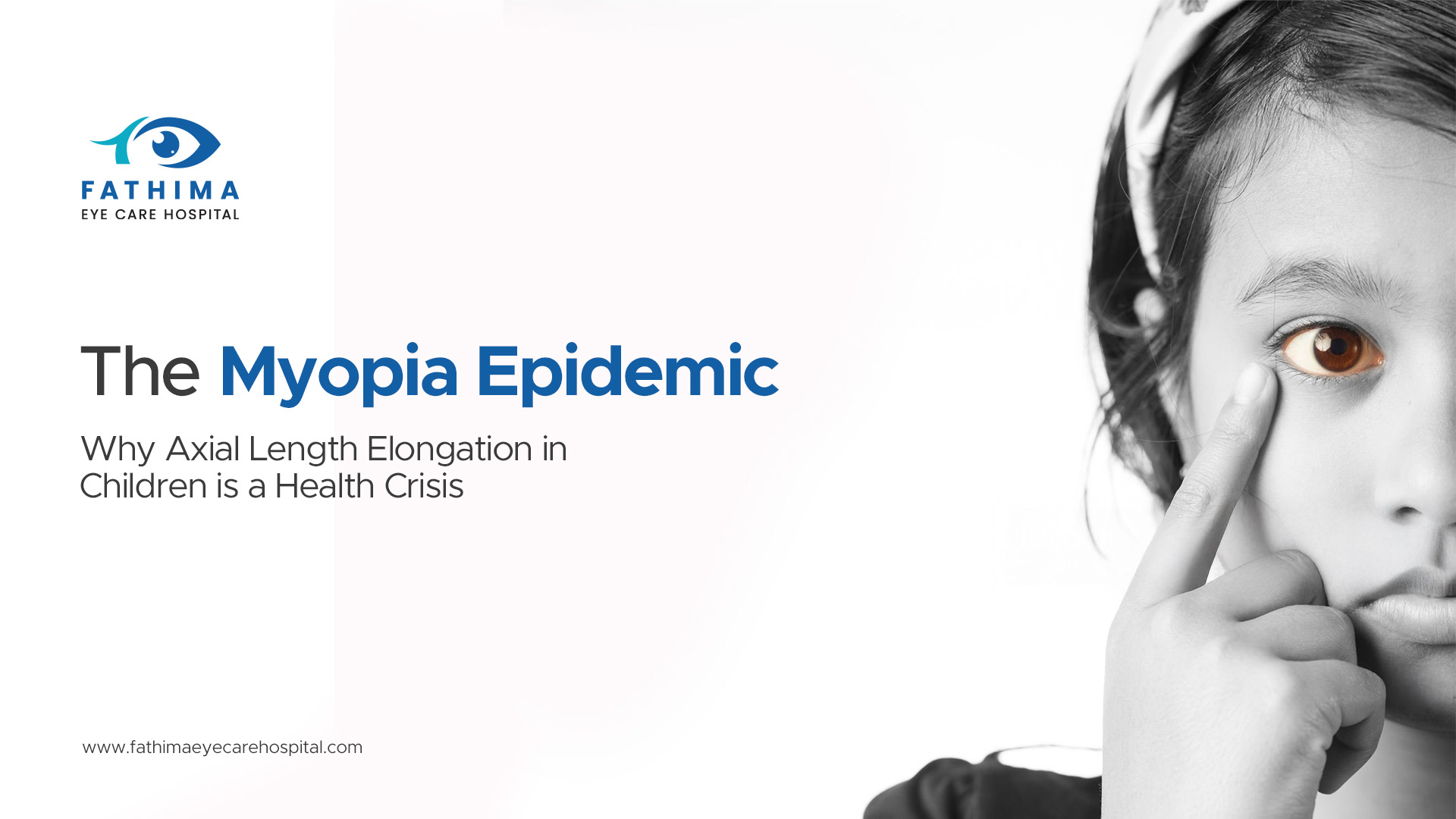

Glaucoma is largely considered as a “Silent Thief Of Sight” because of some important reasons. Most people with glaucoma are literally unaware about the condition they are going through until significant damage has happened. Here we aim to spread an insight over the phenomenon of glaucoma, including its symptoms, various treatment options, and also associated risk factors, while keeping a particular focus on the need of an additional glaucoma eye care in Kerala.
What is Glaucoma?
Glaucoma is an eye disease that can eventually damage an optic nerve, which is often associated with an array of issues that includes an elevated intraocular pressure (IOP) of one’s eyes. Just understand glaucoma as an issue that can affect the optical nerves which are the most crucial in transmitting visual information from eyes to the brain. When this nerve would get damaged, it can ultimately lead to a bad vision loss or even partial or complete blindness if that’s not treated in the most ideal way. This condition can be classified mainly into two, the first one includes an open-angle glaucoma, which is definitely the most common, and the next one would be an angle-closure glaucoma, which is less commonly found and extremely acute in nature.
Glaucoma Symptoms
One of the most alarming aspects of glaucoma is definitely its “ No Symptom” nature from its early stages. This lack of warning would lead to an irreversible loss of vision. However, as the severity of the disease would progress, some individuals would experience, which would also have a gradual loss of peripheral vision, which is normally described as a Tunnel vision.
- Blurred Vision: it’s a difficulty in seeing clearly which can become much more pronounced as time progresses.
- Seeing halos around lights: This may occur especially during night or in extremely low-light conditions.
- Eye pain or headache: This is extremely common in cases of angle-closure glaucoma.
Being extremely aware about these symptoms can really help you to seek glaucoma treatment before any significant damage happens.
Eye Pressure and Glaucoma
Elevated intraocular pressure Or IOP is one of those major risk factors behind the rapid development of glaucoma. The affected eye will continuously produce a fluid called aqueous humor, which helps in maintaining and reducing the pressure of eyes. In a healthy eye, this fluid will drain out properly, which helps in maintaining a balanced pressure. However, in a glaucoma-affected eye, this drainage gets hindered, leading to an increased pressure of eyes.
On the other hand, everyone with a high eye pressure will not ideally develop a glaucoma, but it definitely has an alarming indicator. Regular eye examinations have to be done to measure IOP are extremely vital for detecting these diseases much early.

Glaucoma Risk Factors
Early identification of those risk factors associated with glaucoma is extremely important in proceeding with an early detection and effective treatment. Some of those major risk factors would include:
- Age: Individuals who have crossed the age of 60 and above are of a higher risk.
- Family history: This disease can be the result of a family history which can effectively increase the risk of Glaucoma.
- Ethnicity: There are certain ethnic groups, particularly who are of African descendants, who are more susceptible.
- Medical conditions: Continued Diabetes, hypertension, and heart disease can significantly increase the risk.
- Long-term corticosteroids use: Use of these medicines for a very long time can lead to secondary glaucoma issues.
Timely awareness of these risk factors will allow better screening and proactive management of one’s eye health.
Glaucoma Eye Care in Kerala
In Kerala, there are a lot of facilities with eye care centers that specialise in effective glaucoma management. Regular eye check-ups are extremely essential for early detection and monitoring of the health condition. Most of those leading eye hospitals in Kerala can provide extremely comprehensive services, that range from;
- Eye examinations: Regular check-ups to effectively measure eye pressure to effectively evaluate health of optic nerves.
- Treatment options: A range of treatment methods can be applied, that includes medications, laser treatments, and surgery.
- Patient education: This is extremely important which involves the informing of patients about their much needed lifestyle modifications and need for increased adherence to certain prescribed treatments.
Choosing the best eye hospital for glaucoma service is extremely crucial for optimal care.
Glaucoma Treatment Options
When we can explore effectively for an effective treatment for glaucoma, we can consider lowering eye pressure which can aid in further preventing damage to those optical nerves. Some of those effective treatment options for Glaucoma would also include:
- Medications: Eye drops are the most common method of treatment. They would help in decreasing that much needed fluid production of the eyes and also improve the drainage.
- Laser treatment: There are enough procedures like laser trabeculoplasty that can effectively enhance the drainage of aqueous humor, that can effectively lower the eye pressure.
- Surgery: If medications and laser treatments can become really ineffective, surgical options would be also considered.
These can definitely include creating a new drainage in channelising or implanting various devices to facilitate a better fluid outflow.
Is Glaucoma Curable?
One of the most common questions that are related with glaucoma is definitely to understand if it’s curable. The important fact is that Glaucoma is generally considered as a chronic ophthalmic condition that cannot be fully cured. However, with an early identification and ensuring proper management, the rapid progression of the disease can be effectively controlled, which can ensure the preservation of enhanced vision and ultimately improving the quality of life.

How is Glaucoma Detected?
Early detection of glaucoma is extremely critical for successful management of eye’s. Regular eye exams can definitely play a vital role in better identifying the condition before significant damage can occur. Most eye care professionals aid a lot of diagnostic methodologies in effectively detecting glaucoma, which may also include:
- Tonometry: This test is performed to measure the intraocular pressure of the eyes.
- Ophthalmoscopy: This test can effectively examine the typical optic nerve to specifically find out various signs of the damage.
- Perimetry: These tests are done to effectively identify any loss.
- Pachymetry: This test can effectively measure corneal thickness, which can be one of those major risks of glaucoma.
Why Does Glaucoma Occur?
The exact cause of glaucoma cannot be still not traceable, but it is highly believed that it is related to a combination of various genetic and even some environmental factors. Elevated eye pressure is one of the major risk factors, where some individuals would also develop glaucoma even if they have abnormal eye pressure, which is termed normal-tension glaucoma.
Understanding glaucoma is extremely essential in safeguarding an enhanced vision. Performing regular eye examinations and having an awareness of the above risk factors can help to tackle Glaucoma to a certain extent, Early interventions can also significantly impact the progression of the disease. If you feel that you or your loved ones are at risk, please don’t hesitate in seeking help from a reputable eye care provider.
For comprehensive glaucoma eye care in Kerala, Fathima Eye Care is definitely a leading name, largely known for their enhanced services and outstanding commitment in creating patient education and treatment. Visit Fathima Eye Care right today, to avail the most ideal services at a hospital for glaucoma service, and take the very first step in preserving your vision. Remember, preserving your vision initiates with a proactive eye health management.
Common FAQs
- What is glaucoma in the eyes?
Glaucoma is a group of eye diseases that damage the optic nerve, often associated with increased eye pressure, leading to vision loss.
- Is glaucoma curable?
Glaucoma is not curable but can be managed effectively with early detection and appropriate treatment.
- How is glaucoma detected?
Through regular eye exams using methods such as tonometry, ophthalmoscopy, and visual field tests.
- Why does glaucoma happen?
Glaucoma occurs due to a combination of genetic and environmental factors, often involving increased eye pressure.
- What’s the best glaucoma treatment in India?
Treatment options include medications, laser therapy, and surgical procedures, depending on the severity and type of glaucoma.
- Is glaucoma curable by surgery?
Surgery can help manage glaucoma but is not a cure; it aims to lower eye pressure to prevent further optic nerve damage






